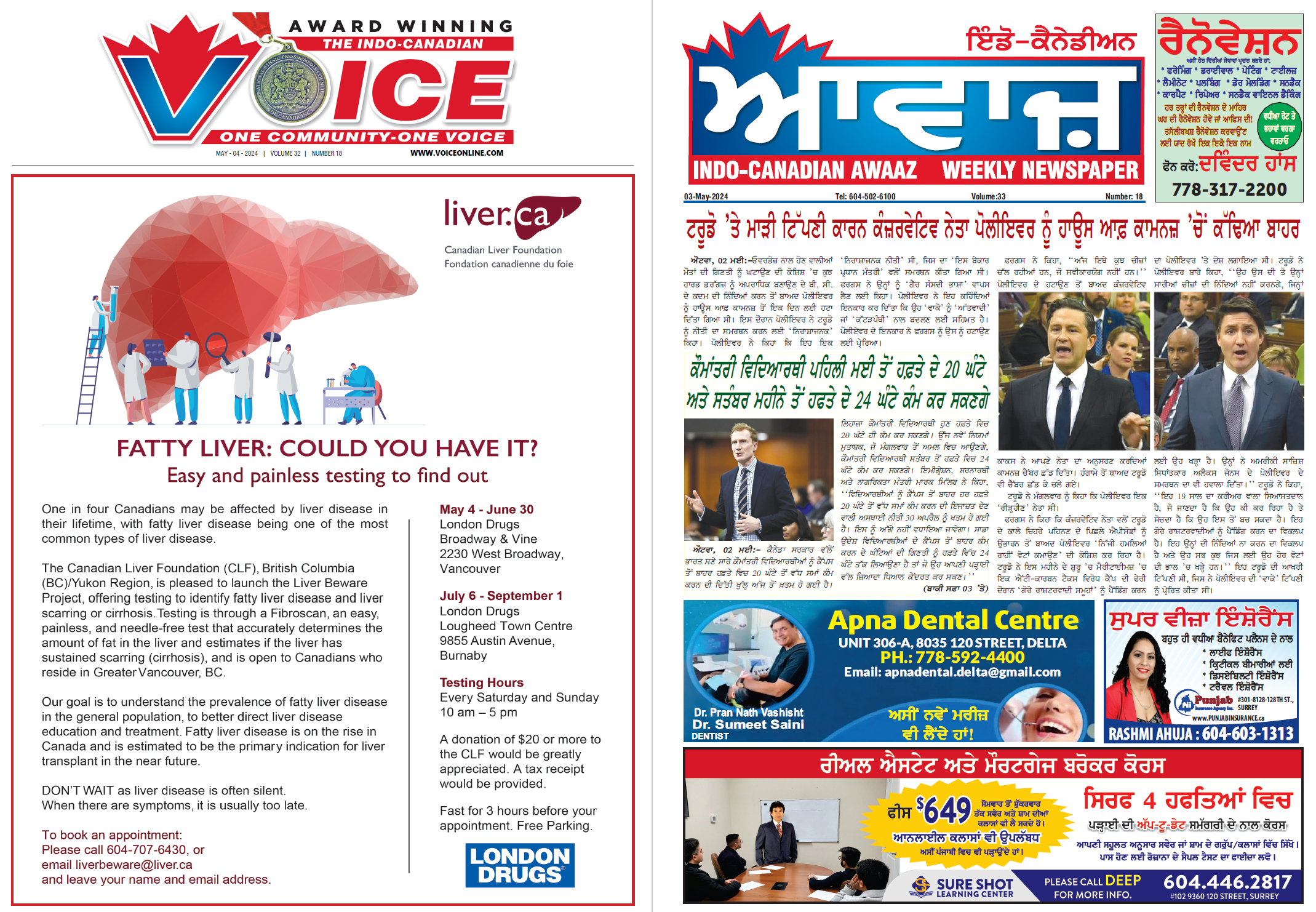AS British Columbians head into the holidays and peak respiratory virus season, Pharmasave pharmacists in B.C. are urging adults to ensure they are up to date on recommended vaccinations. Those not yet protected could be putting their health and the health of those around them at risk, potentially burdening the healthcare system at a time when illnesses including influenza, COVID-19 and RSV are circulating. To help increase adult immunization rates and awareness, Pharmasave has launched a province-wide adult immunization drive.
“It takes about two weeks for vaccines to become effective, so it’s not too late for British Columbians to protect themselves against circulating illnesses before the holiday season when the circulating viruses typically spread faster with increased socializing and family gatherings,” says Christine Antler, a 15-year veteran pharmacist and the Region Director, Pharmacy for Pharmasave, the province’s largest network of independent community pharmacies.
Already this season, COVID-19 vaccine uptake in B.C. is at 21.1% according to the latest data. With larger and more frequent gatherings ahead during the holiday season, Pharmasave pharmacists are encouraging anyone who has not yet received their flu and COVID-19 vaccines to get immunized, in addition to considering other recommended potentially lifesaving adult vaccinations.
“This year, in addition to the annual flu shot, we’re also urging everyone to take a more holistic approach to help protect themselves and those around them with other vaccines available including those for pneumonia, shingles, tetanus, diphtheria, pertussis, and new-this-year RSV.”
Starting this week, British Columbians can make an appointment at any Pharmasave location for an adult vaccination consultation. During the consultation, pharmacists will review the patient’s vaccination history, review the dosing schedule for specific vaccines, address questions and provide facts and resources to counter myths and misinformation, and administer appropriate vaccinations. Patients may receive influenza, pneumonia, COVID, shingles, RSV and other recommended vaccinations during the appointment.
“British Columbians should not rely on their childhood vaccinations alone, but instead continue to vaccinate throughout their lives. Some are recommended annually, like influenza. Others are recommended only after a certain age, like pneumonia, while others require boosters periodically, like tetanus and diphtheria,” says Antler.
New and updated vaccines are released regularly, and with them comes a need for education and awareness among the public. For example, the RSV vaccine has recently been approved for people 60 and older and is designed to prevent the severe respiratory illness that overwhelmed hospitals across the province last year. Despite the severity of the virus for at-risk individuals, two in five British Columbians 60 and older (42%) said they are either not likely to get the RSV vaccine this season or are not sure. Awareness of RSV is also low among British Columbians; nearly seven in 10 (68%) indicate they have limited awareness; one-third (33%) have not heard of it, and more than a third (35%) have heard of RSV, but don’t know much about it.
Pharmasave has also introduced an interactive vaccination calculator to help British Columbians learn more about recommended vaccines. The online tool guides individuals through a set of screening questions, generating a personalized list of recommended vaccinations. The pharmacy’s digital flipbook and in-store materials provide patients with guidance on seven important vaccinations included in the Adult Immunization Schedule.
“Adult British Columbians may not be up to date with their vaccinations, including shingles and pneumonia, simply because they are unaware they exist or because they may not understand that they can protect against life-threatening and long-lasting consequences of these illnesses,” says Antler. “Vaccination is by far the most effective way to avoid vaccine-preventable illness, keep vulnerable people out of hospitals and reduce the burden on our healthcare system.”












